Last updated on November 13th, 2025 at 12:29 pm
Sales call recording is more than a feature — it’s a framework for excellence. In today’s fast-paced, remote-friendly sales environment, your conversations are your most important assets. Yet, without a reliable way to capture, review, and learn from them, your team risks leaving insights — and revenue — on the table.
Understanding recording sales calls legal requirements is crucial. In 2025, compliance hinges on knowing One-Party vs. Two-Party consent regions.
India Specifics: Under India call recording law one party consent 2025, recording is generally permissible with the consent of one participant, but best practices suggest transparency.
Strategic Value: Recording is not just for compliance; it drives revenue through better coaching, dispute resolution, and AI-driven insights.
The Solution: Tools like FreJun automate consent logging and secure storage to keep you compliant with customer service call recording law
From new rep training to deal follow-up accuracy, and from quality assurance to legal documentation, sales call recording delivers critical value across the board. But to unlock this value safely, companies must also prioritise compliance, data privacy, and ethical standards.
Discover How FreJun’s Call Recording Works
This guide will help you master the best practices of sales call recording so you can build a high-performance team without compromising on trust, transparency, or legality.
Table of contents
- Why Call Recording Is a Must in Modern Sales
- How to Know the Law: Consent Rules and Regional Variations
- How Should Teams Prepare Before Recording Sales Calls Legal Requirements?
- How to Disclose and Confirm Recording Sales Calls for Compliance?
- Best Practices for Storage and Security of Call Data
- How to Train Teams on Call Recording Etiquette and One Party Consent?
- How Can Sales Call Recording Drive Performance and Revenue?
- How Does FreJun Ensure Compliance with India Call Recording Laws?
- Final Thoughts
- FAQs
Why Call Recording Is a Must in Modern Sales
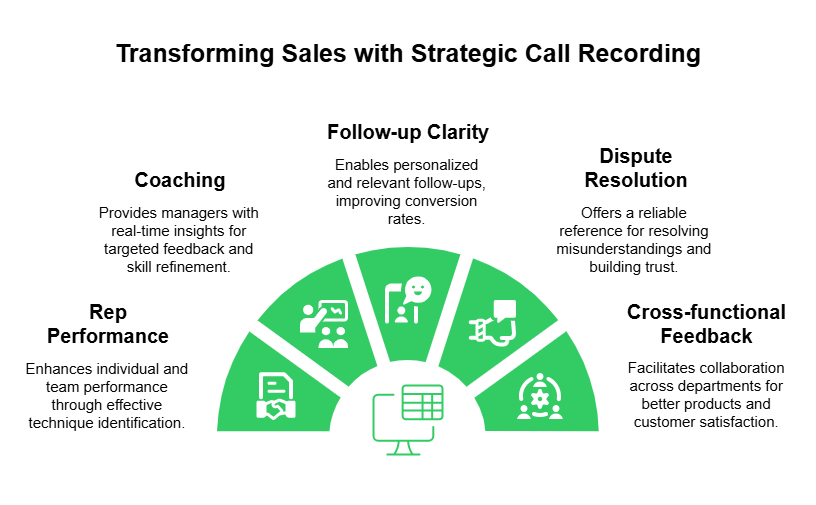
Call recording has evolved from being a niche feature for call centres to a mainstream sales enablement tool for B2B and B2C companies alike. Sales processes today are longer, more data-driven, and involve multiple touchpoints. Without recordings, teams struggle to connect the dots across calls or scale their best-performing messaging.
Reasons to make recording a core sales function:
- Better rep performance: Teams can hear what success sounds like and replicate it.
- Improved coaching: Managers can review real conversations, not rely on call summaries.
- Follow-up clarity: Reps can listen to past calls to prepare more relevant follow-ups.
- Dispute resolution: Having a recorded log can prevent or settle misunderstandings with customers.
- Cross-functional feedback: Marketing, product, and success teams can hear directly from the field.
Recording isn’t about surveillance — it’s about systematising growth and learning. Companies that embrace this mindset outperform those that rely solely on note-taking or memory.
How to Know the Law: Consent Rules and Regional Variations
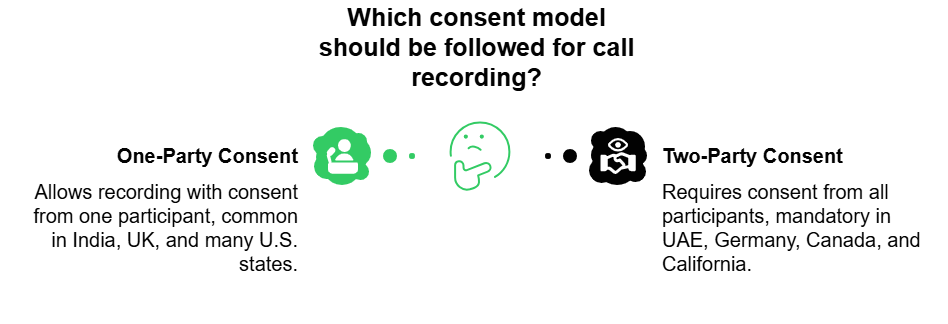
Call recording laws differ from one country to another and sometimes even within regions of the same country. Understanding where and when you need to obtain consent is non-negotiable for compliant operations.
Consent models:
- One-party consent means one participant (usually the rep) knows the call is being recorded. This is the standard in India, the UK, and many U.S. states.
- Two-party (or all-party) consent means everyone on the call must be notified and agree before recording. This is required in countries like the UAE, Germany, Canada, and California in the U.S.
Failing to obtain proper consent can lead to:
- Hefty fines
- Criminal liability
- Damaged brand trust
- Lawsuits or loss of customers in regulated markets
Best practice: Apply the most restrictive law between your rep’s and the customer’s jurisdiction. When in doubt, disclose and document consent.
How Should Teams Prepare Before Recording Sales Calls Legal Requirements?
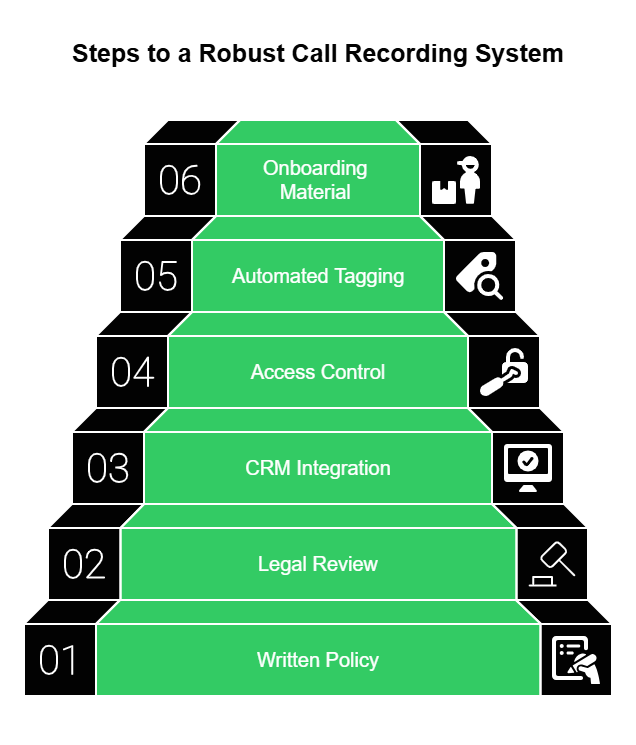
Before your team ever hits “record,” you need to build a solid policy and infrastructure that supports both your legal obligations and operational goals.
Key components of a strong pre-recording system:
- Written internal policy: Define when calls are recorded, how long they’re stored, and who can access them.
- Legal review: Consult with legal counsel to ensure regional compliance.
- CRM or ATS integration: Sync recordings directly to tools like Salesforce, Zoho, CEIPAL, or LeadSquared.
- User access control: Ensure only authorized users can view or download recordings.
- Automated tagging systems: Categorize recordings by use case, industry, or stage.
- Onboarding material: Train reps during induction on how call recording works and when to notify customers.
Building the right foundation ensures that call recording becomes a growth enabler — not a legal risk.
How to Disclose and Confirm Recording Sales Calls for Compliance?

What you say at the beginning of the call can determine whether your recording is legal—or actionable in the event of a complaint. This is especially critical in two-party consent regions.
Recording best practices while on the call:
- Start with a disclaimer like: “This call may be recorded for quality and training purposes.”
- Ask for confirmation: “Is that okay with you?” Wait for a verbal yes.
- Be empathetic: Explain how recording helps serve the customer better.
- Allow opt-out: If someone declines, be prepared to disable recording.
- Log consent: Use a CRM note or system field to indicate the consent was given.
FreJun allows automatic disclaimers and logs confirmations, ensuring compliance and transparency from the very first second of the call.
Best Practices for Storage and Security of Call Data

After a call is recorded, it becomes sensitive business data — much like customer payment info or contract details. You need secure systems and defined processes to handle it. A data retention policy outlines how long specific types of data should be stored and archived before being deleted or moved. It’s a crucial aspect of data management, ensuring compliance with regulations, legal requirements, and best practices while also reducing storage costs and improving data security.
Post-call best practices:
- Encrypt recordings both in transit and at rest.
- Assign access levels so that only relevant team members can listen.
- Use tagging and search features to organise call libraries.
- Implement auto-delete policies based on your industry’s retention rules (typically 6–24 months).
- Support user rights: Be prepared to share or delete recordings upon customer request under laws like GDPR or India’s PDP bill.
A responsible post-call system isn’t just safer — it’s scalable.
How to Train Teams on Call Recording Etiquette and One Party Consent?

Technology is only as compliant as the people using it. Even with great tools, your reps need proper guidance on how to handle recorded calls professionally. Keep your sales team informed about the importance of call recording laws and best practices. Provide regular training sessions and updates on new regulations and internal policies. An informed team is better equipped to handle call recordings compliantly and ethically.
What to train on:
- What consent means and when to request it
- Scripts for disclosure in different regions
- How to respond if someone objects to being recorded
- How to log consent or denial in the CRM
- When to pause or stop recording (e.g., sensitive conversations)
- How to review past recordings for learning and improvement
Make call recording etiquette part of onboarding, ongoing training, and quarterly performance reviews. It’s a culture of respect meets performance.
How Can Sales Call Recording Drive Performance and Revenue?

Once compliance is covered, the real magic of call recording begins. You now have access to a rich dataset of customer language, rep performance, and deal flow intelligence. Recording sales calls offers significant benefits for training, coaching, and improving sales performance. By analysing recordings, sales teams can identify strengths and weaknesses, uncover customer insights, and optimise their approach to improve win rates. Sales managers can leverage call recordings to provide targeted feedback and coaching, leading to enhanced team performance.
Use recorded calls to:
- Identify patterns in high-converting calls
- Hear how customers describe pain points in their own words
- Build onboarding libraries from real, successful calls
- Coach reps with timestamped feedback
- Compare rep-to-rep performance by talk time, objection handling, and tone
- Improve email or landing page copy based on real buyer language
The smartest teams don’t just record — they analyse, learn, and optimise.
How Does FreJun Ensure Compliance with India Call Recording Laws?
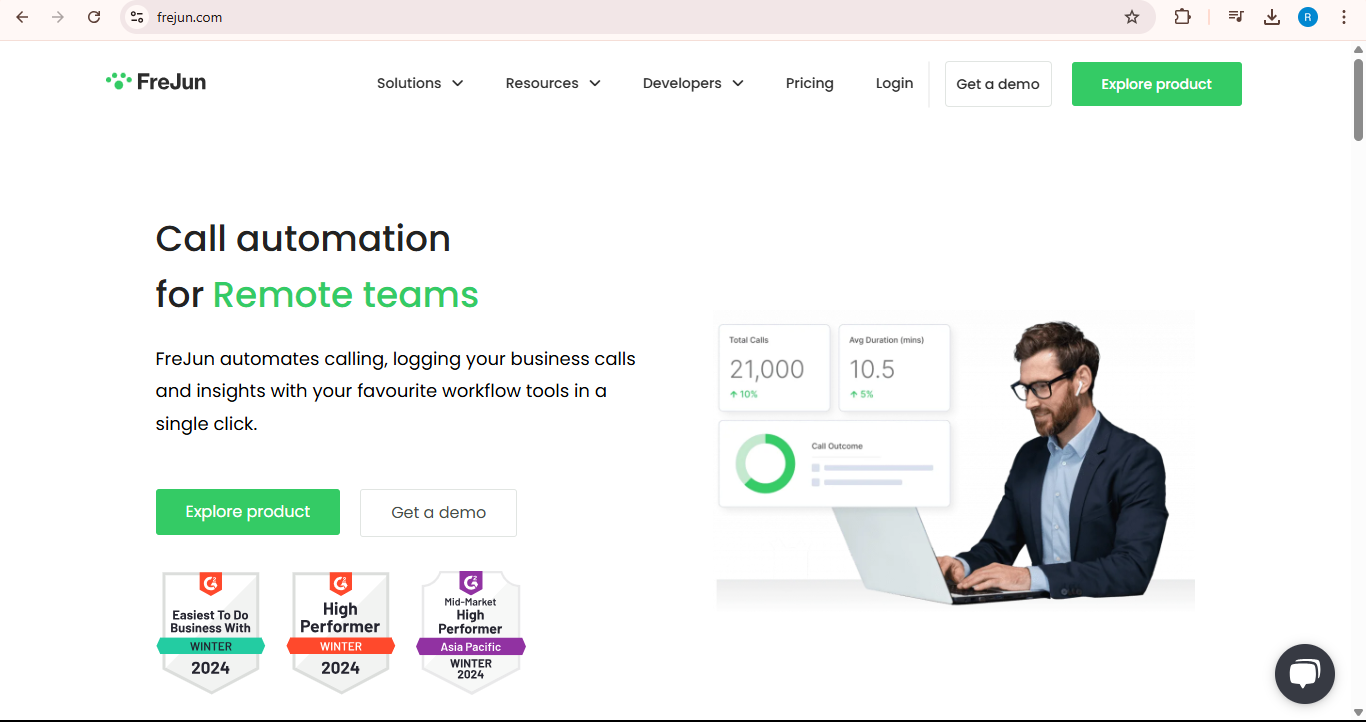
FreJun is built from the ground up for compliance-conscious, performance-focused sales teams. It blends robust legal safeguards with user-friendly features that drive adoption and boost results.
FreJun’s compliance-driven toolkit:
- Pre-call consent prompts
- Consent logging by country or region
- Secure storage with role-based access
- Auto-tagging and searchable call libraries
- Seamless CRM integration with Zoho, Salesforce, CEIPAL, LeadSquared
See How FreJun Integrates with Leading CRMs
- AI transcription, keyword search, and sentiment tracking
How FreJun’s AI Enhances Business Communication
- Training playlists for onboarding and coaching
- Exportable call records for audits or compliance reviews
Whether you’re scaling into the UAE, India, or the U.S., FreJun ensures your team records smartly, legally, and with impact.
FreJun helps your sales team record smarter, not riskier — so you can focus on growth, not legal headaches.
Why Choose FreJun: It offers unmatched AI features, workflow automation, and CRM syncing at a fraction of the cost of competitors.
Pricing: Standard: Begins at $14.49 per user, per month.
Professional: Starts at $16.69 per user, per month.
G2 Rating: 4.9/5 (Read Reviews)
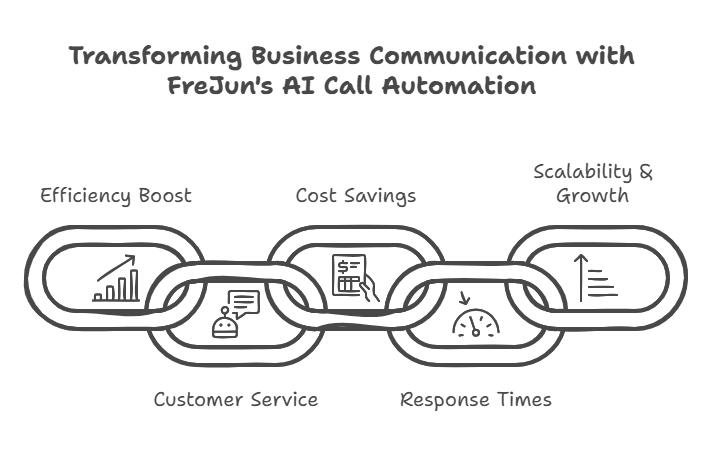
Final Thoughts

Call recording is one of the most powerful tools for modern sales — but it comes with great responsibility. In 2025, customers will be more privacy-aware, and global compliance standards will be stricter than ever. That’s why businesses must adopt a dual mindset: compliance-first and performance-forward.
By training your team, choosing the right tools, and following best practices across pre-call, mid-call, and post-call processes, you can turn every recorded conversation into a conversion opportunity, a coaching moment, or a legal safety net.
Smart teams don’t just hit record — they record with purpose, protect with precision, and win with confidence.
Get Started with FreJun – Free Trial Available →
CRM-Integrated. AI-Powered. Globally Compliant.
Further Reading: Top 15 Voip Services to Boost Business Efficiency in 2025 – Find Your Best Fit
FAQs
No. You must inform them every time, especially if the law in their country requires recurring consent.
Yes, but the same consent rules apply. Always inform and obtain permission.
Either disable recording or switch to a channel that doesn’t require recording. Respect their choice and continue professionally.
Platforms like FreJun let you tag consent or auto-log it when a disclaimer plays and the customer continues.
Yes, if internal sharing is covered in your privacy policy and consent notice. Avoid external distribution without explicit customer approval.
Yes — if done with proper consent. FreJun supports dual-party consent laws by providing pre-call voice alerts or visual notifications to ensure legal compliance.
FreJun automates call consent workflows and securely stores recordings with audit trails to meet region-specific regulations like GDPR and TRA.
Yes, internal sharing for training is standard, provided your privacy policy covers it and you are compliant with India call recording laws.
Violating privacy rights can lead to legal action under the IT Act regarding violation of privacy, though specific “illegal recording” penalties vary by case context.
Yes, FreJun offers features to log consent automatically, ensuring you have an audit trail for recording sales calls legal compliance.
